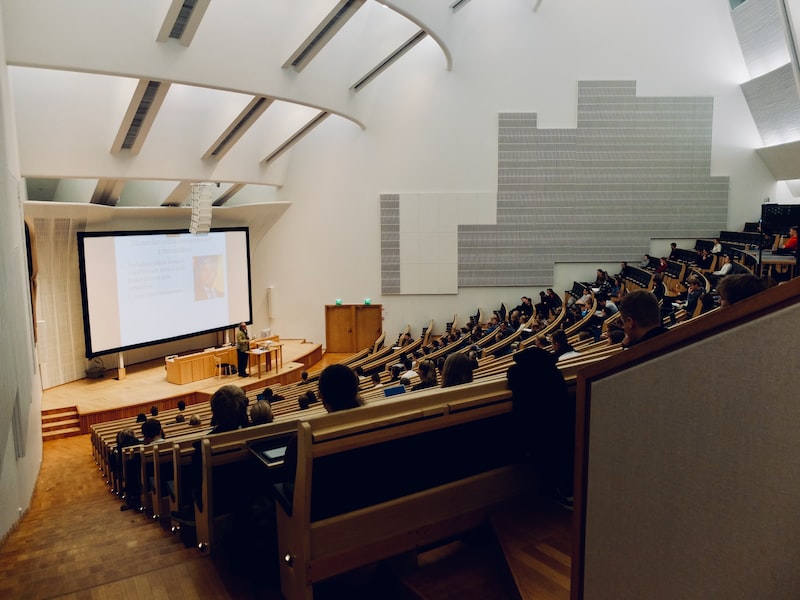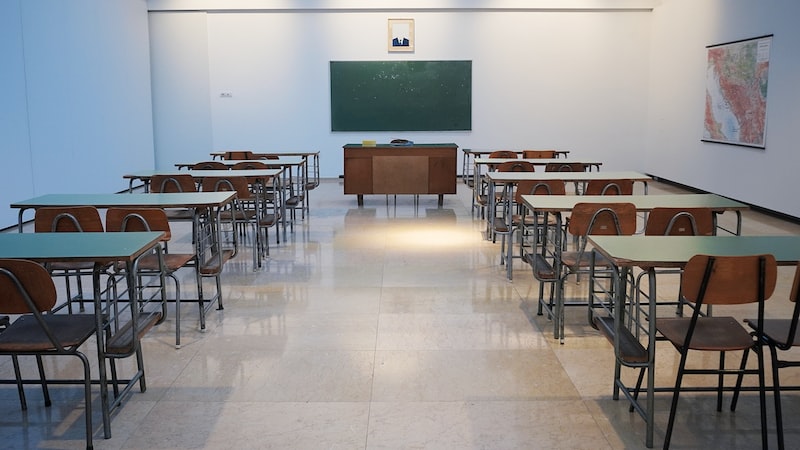Have you ever wondered if there’s a better way to assess students’ learning than just relying on grades? In today’s modern education system, the traditional approach of assigning letter grades may not be the most effective method to gauge a student’s true understanding and abilities. Let’s take a moment to rethink assessment methods and explore alternatives that go beyond grades.
One innovative approach gaining traction is competency-based assessment. Instead of focusing solely on test scores or final grades, competency-based assessment aims to evaluate students based on their mastery of specific skills and knowledge. This approach considers the individual strengths and weaknesses of students, allowing educators to provide personalized feedback and support for their learning journey.
Another method worth considering is project-based assessment. By engaging students in real-world projects, they can demonstrate their understanding and apply their knowledge to practical situations. Project-based assessment encourages creativity, critical thinking, collaboration, and problem-solving skills – all essential for success in the modern world. Plus, it brings a sense of excitement and authenticity to the learning process, making it more engaging and meaningful for students.
In addition to these alternative assessment methods, formative assessments play a crucial role in evaluating student progress. Unlike summative assessments, which focus on end-of-unit or end-of-year evaluations, formative assessments occur throughout the learning process. They provide valuable insights into a student’s understanding and help identify areas where additional support or instruction may be needed. Formative assessments can take various forms, such as quizzes, class discussions, peer evaluations, or self-reflections.
Moreover, digital tools and technology have opened up new possibilities for assessment in modern education. Online platforms and learning management systems enable educators to track students’ progress, provide timely feedback, and create interactive quizzes or simulations. These digital tools facilitate continuous assessment, allowing students to learn at their own pace while receiving immediate feedback and support.
In conclusion, the time has come to rethink traditional assessment methods and explore alternatives that go beyond grades. Competency-based assessment, project-based assessment, formative assessments, and digital tools all contribute to a more holistic and student-centered approach to evaluation. By embracing these innovative methods, educators can better support students’ learning journeys, foster critical skills for the future, and create a more engaging and impactful educational experience.
Emphasizing Skill Development and Mastery
Are you looking to unlock your full potential and achieve mastery in your field? Skill development is the key to reaching new heights of success and personal growth. In this article, we will delve into the importance of emphasizing skill development and mastery, and how it can positively impact your life.
Imagine a world where you possess an array of skills that set you apart from the crowd. You would be equipped with the tools necessary to tackle any challenge that comes your way. By emphasizing skill development, you can enhance your abilities and broaden your horizons.
One of the main benefits of skill development is the opportunity for personal growth. As you acquire new skills, you expand your knowledge and gain a deeper understanding of your chosen field. This not only boosts your confidence but also opens doors to new opportunities and career advancements.
Skill development goes hand in hand with mastery. Mastery is the pinnacle of skill development, representing the highest level of expertise in a particular area. It requires continuous learning, practice, and dedication. Think of mastery as a journey rather than a destination – as you progress, you become better and better, constantly refining your craft.
So, how can you emphasize skill development and strive for mastery? Start by setting clear goals and objectives. Identify the skills you want to develop and create a roadmap for achieving them. Break down your goals into smaller, actionable steps and track your progress along the way.
Another crucial aspect is deliberate practice. Simply going through the motions won’t lead to mastery. Instead, focus on deliberate practice, which involves pushing yourself out of your comfort zone, seeking feedback, and actively working on improving specific areas of your skills.
Additionally, surround yourself with like-minded individuals who share your passion for skill development. Engage in communities, attend workshops, and seek mentorship from experts in your field. Collaborating and learning from others can provide fresh insights and perspectives, accelerating your progress.
In conclusion, skill development and mastery are vital for personal growth and achieving success. By emphasizing skill development, setting clear goals, practicing deliberately, and seeking opportunities for growth, you can unlock your full potential and become a true master in your field. So, embark on this journey of self-improvement and let your skills shine bright!
Implementing Authentic Assessments in the Classroom
Are you tired of traditional assessments that fail to capture the true potential of your students? If so, it’s time to consider implementing authentic assessments in the classroom. Authentic assessments offer a fresh approach to evaluating student learning, providing a more accurate reflection of their knowledge and skills. In this article, we will explore the benefits and strategies for incorporating authentic assessments into your teaching practices.
So, what exactly are authentic assessments? Unlike conventional tests that rely on memorization and regurgitation of facts, authentic assessments focus on real-world applications and problem-solving. They aim to simulate genuine situations where students can showcase their abilities in practical ways. By doing so, these assessments encourage critical thinking, creativity, and deeper understanding of the subject matter.
One of the key advantages of authentic assessments is their ability to engage students actively in the learning process. Rather than merely answering multiple-choice questions, students are challenged to analyze, evaluate, and synthesize information. This active involvement fosters a sense of ownership over their own learning journey, boosting motivation and retention of knowledge.
To implement authentic assessments effectively, consider incorporating project-based assignments. For example, instead of a written exam on a historical event, have students create a documentary or give a presentation that requires them to research, analyze various perspectives, and communicate their findings effectively. This approach not only assesses their content knowledge but also develops essential skills such as communication, collaboration, and critical thinking.
Another strategy is to introduce performance tasks that mirror real-world scenarios. For instance, in a science class, students could design and conduct experiments, record observations, and draw conclusions based on evidence. This hands-on approach allows students to apply scientific principles, develop problem-solving skills, and experience the thrill of discovery.
In conclusion, implementing authentic assessments in the classroom offers numerous benefits for both teachers and students. These assessments promote deeper learning, critical thinking, and active engagement. By incorporating project-based assignments and performance tasks, educators can create a more dynamic and meaningful learning experience. So, why settle for traditional assessments when you can unleash the full potential of your students with authentic assessments? It’s time to revolutionize your teaching practices and witness the amazing results firsthand.
Incorporating Formative Assessment Strategies
Are you looking to enhance your teaching methods and improve student learning? One effective approach is incorporating formative assessment strategies into your classroom practices. Formative assessment refers to the ongoing evaluation of students’ progress and understanding throughout the learning process. By utilizing various techniques, teachers can gather valuable information about their students’ strengths, weaknesses, and areas that require additional support.
One formative assessment strategy that can greatly benefit both teachers and students is the use of exit tickets. These brief assessments are administered at the end of a lesson or class period and allow students to demonstrate their understanding of the key concepts covered. Exit tickets can take the form of a short quiz, a reflective prompt, or even a simple thumbs-up or thumbs-down response. By reviewing the responses, teachers can quickly gauge whether students have grasped the material or if further instruction is needed.
Another effective formative assessment technique is the use of think-pair-share activities. In this strategy, students are given a question or problem to consider individually. They then pair up with a classmate to discuss their thoughts and ideas. Finally, pairs share their findings with the rest of the class. This approach encourages active engagement, collaboration, and critical thinking skills. Teachers can observe the discussions and gain insights into individual student understanding while providing immediate feedback and clarifications.
One engaging and interactive method of formative assessment is the use of technology tools such as online quizzes, polls, and surveys. These digital platforms allow teachers to create and administer assessments in real-time, providing instant feedback and generating data on student performance. Furthermore, the gamification elements inherent in many online assessment tools make the learning experience more enjoyable for students, fostering motivation and participation.
Incorporating formative assessment strategies into your teaching practice can have a significant impact on student learning. It allows for timely interventions, personalized instruction, and a deeper understanding of each student’s needs. By using techniques like exit tickets, think-pair-share activities, and digital tools, teachers can create an engaging and supportive learning environment that promotes student growth and success. So why not take the leap and start integrating formative assessment strategies into your classroom today?
Redefining Success: Beyond Letter Grades

Are you tired of the traditional education system that solely focuses on letter grades as a measure of success? It’s time to embrace a new perspective and redefine what success truly means. In this article, we’ll explore the limitations of letter grades and discover alternative ways to evaluate achievement.
Picture this: a student studying diligently for hours, pouring their heart and soul into learning, only to receive a mediocre grade that fails to reflect their true capabilities. Letter grades, while commonly used, often fall short in capturing the full picture of a student’s growth and potential. They can be demoralizing, reducing individuals to mere numbers and overshadowing their unique talents and qualities.
But what if success wasn’t defined by an arbitrary letter? What if we shifted our focus to a holistic approach that considers personal growth, critical thinking, and individual strengths?

Instead of fixating on grades, educators can assess students based on their ability to apply knowledge in real-world scenarios. This approach encourages creativity, problem-solving skills, and adaptability—essential traits for success in today’s rapidly changing world. Imagine a classroom where students are inspired to think independently, collaborate with peers, and tackle challenges head-on, all while nurturing their passion for learning.
By embracing a more comprehensive evaluation system, we can empower students to explore their interests and develop skills beyond the confines of standardized tests. Assessments could include project-based assignments, presentations, and portfolios, allowing students to showcase their abilities in a tangible and meaningful way. These methods foster a deeper understanding of concepts and encourage lifelong learning, rather than mere memorization for exams.
Moreover, let’s not forget the importance of emotional intelligence and character development in defining success. Traits like empathy, resilience, and leadership are fundamental for personal and professional growth. Integrating social and emotional learning into the curriculum equips students with vital life skills, preparing them to navigate challenges and build meaningful relationships.
In conclusion, it’s time to break free from the limitations of letter grades and redefine success in education. By adopting a more holistic approach that values personal growth, critical thinking, and character development, we can nurture well-rounded individuals who are prepared to thrive in the complex world beyond the classroom. Let’s shift our focus from grades to empowering students to become curious, creative, and compassionate learners, ready to make a positive impact on the world.
The Role of Self-Assessment and Peer Assessment
Have you ever wondered how you can improve your learning experience? The answer lies within two powerful assessment methods: self-assessment and peer assessment. These strategies allow learners to take control of their own progress and benefit from the insights of their peers. Let’s dive into the roles of self-assessment and peer assessment in enhancing learning outcomes.
Self-assessment is like looking into a mirror – it allows learners to reflect on their own strengths and weaknesses. By evaluating their performance, learners gain a deeper understanding of what they have learned and identify areas that require improvement. This process cultivates self-awareness and empowers individuals to set realistic goals for themselves. Moreover, when learners actively engage in self-assessment, they develop critical thinking skills and become more independent in their learning journey.
On the other hand, peer assessment introduces a collaborative element to the learning process. It involves learners providing feedback and evaluating each other’s work. This method not only encourages active participation but also fosters a sense of responsibility among learners. When students assess their peers’ work, they gain valuable insights from different perspectives. It promotes constructive discussions, facilitates knowledge sharing, and enhances communication skills. Additionally, peer assessment helps create a supportive learning environment where students learn from one another and develop empathy and respect for diverse viewpoints.
By combining self-assessment and peer assessment, learners receive a comprehensive evaluation of their progress. Self-assessment provides an individualized perspective, while peer assessment offers a collective evaluation. Together, these approaches promote a holistic understanding of a subject and help learners identify their strengths and areas for improvement more effectively.
In conclusion, self-assessment and peer assessment play vital roles in optimizing the learning experience. They empower learners to take ownership of their progress, foster collaboration, and enhance critical thinking skills. By utilizing these assessment methods, individuals can unlock their full potential and achieve higher levels of success in their educational endeavors. So, why not embrace the power of self-assessment and peer assessment on your learning journey? The benefits are truly remarkable!
Using Technology to Enhance Assessment Practices
Are you tired of traditional assessment methods that seem outdated and fail to capture the true potential of your students? Well, fret no more! In this digital age, technology has revolutionized various aspects of our lives, including education. One area where technology is making a significant impact is in enhancing assessment practices.
With the advent of innovative tools and platforms, educators now have access to a wide range of options to assess their students more effectively. Gone are the days of relying solely on pen-and-paper tests. Now, teachers can employ interactive multimedia assessments that engage students and provide valuable insights into their understanding.
Imagine being able to create quizzes and exams with just a few clicks, incorporating images, videos, and audio elements to make the assessment more engaging. Technology allows for precisely that. These multimedia assessments not only capture the attention of students but also provide a holistic evaluation of their knowledge and skills.
Furthermore, technology enables immediate feedback, which is crucial for both students and teachers. Traditional assessment methods often result in delayed feedback, leaving students uncertain about their performance and lacking the opportunity for timely improvement. However, with technology, assessments can be instantly graded, and personalized feedback can be generated effortlessly. This empowers students to identify their strengths and weaknesses, enabling them to focus on areas that require further development.
Another significant advantage of using technology for assessment is the ability to track student progress over time. By collecting and analyzing data from various assessments, educators can gain valuable insights into individual student performance, as well as identify overall trends within a class or school. This data-driven approach allows for targeted interventions and instructional strategies to support student growth.
In conclusion, technology has revolutionized assessment practices by providing innovative tools and platforms that enhance engagement, offer immediate feedback, and enable data-driven decision-making. By embracing these technological advancements, educators can create a more dynamic and effective learning environment, empowering students to reach their full potential. So, why stick to traditional assessments when you can harness the power of technology to unlock new possibilities?












Leave a Reply